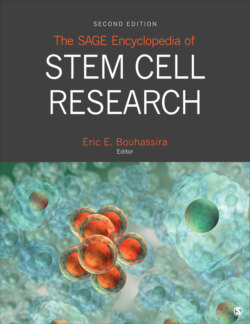Читать книгу The SAGE Encyclopedia of Stem Cell Research - Группа авторов - Страница 425
На сайте Литреса книга снята с продажи.
Phase I Clinical Trials
ОглавлениеPhase I studies are designed to determine the effects of the new treatment modality on humans, including its absorption, metabolism, excretion, and possible side effects from increased dosage levels and usually involve only a small number of healthy paid volunteers—20 to 100. This process can take several months to complete. The most notable of the ongoing Phase 1 clinical trials on MS in the United States are described as follows.
Phase I-II Clinical Trial With Autologous Bone Marrow–Derived Mesenchymal Stem Cells for the Therapy of Multiple Sclerosis. This trial is for the evaluation of the safety, feasibility, and benefits of intravenous infusion of mesenchymal cells from autologous bone marrow in patients with MS.
Sclerosis. Study designed to evaluate the safety and tolerability of intrathecal (drug injected directly into the spinal canal) administration of autologous mesenchymal stem cell–derived neural progenitor cells (MSC-NP) in patients with progressive MS.
Investigating Mechanism of Action of DAC HYP in the Treatment of High-Inflammatory Multiple Sclerosis (MS). To investigate the mechanism of action and to assess long-term safety and efficacy of CD25-blocking therapies in HI-MS.
Double Blind Placebo-Controlled Phase I/II Clinical Trial of Idebenone in Patients With Primary Progressive Multiple Sclerosis (IPPoMS). Idebenone is a drug that is similar to coenzyme Q10, a common dietary supplement. Research data suggest that idebenone may be able to limit demyelination and death of brain cells and thereby slow or halt the progression of neurological dysfunction in MS.
Comparison of the Efficacy and Mechanisms for MBCT and CT for Multiple Sclerosis (MS) Chronic Pain. Cognitive therapy (CT) and mindfulness-based cognitive therapy (MBCT) is a psychosocial treatment that has been proven to be potentially beneficial for chronic MS pain. The aim is to teach patients to identify and replace unhelpful thoughts about pain with helpful, more adaptive thoughts.
Lipoic Acid as a Treatment for Acute Optic Neuritis. Explores the hypothesis that oral lipoic acid can safely help relieve permanent optic nerve injury in patients diagnosed with acute optic neuritis. It will also help determine how the body absorbs and breaks down the study drug, and what effects it has on the immune system.
